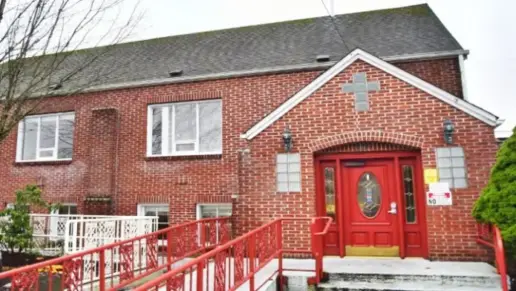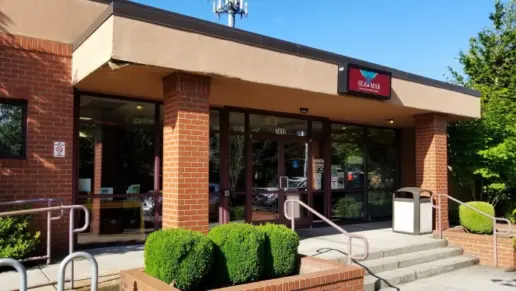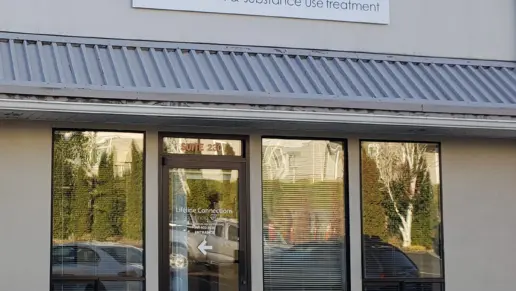need more food for new clients was not able to slowly become a peer member. i was having some medical issues and was written up when i was unable to make it to one of the groups they did not take into consideration my back issues nor my withdrawls off of fentinal powder i ha ...
About American Behavioral Health Systems – Mission (Residential Inpatient Services)
American Behavioral Health- Mission Avenue is an alcohol, drug, and co-occurring disorder treatment center located in Spokane Valley, Washington. They provide a comprehensive approach to behavioral intervention, counseling, and education that helps people overcome difficulties in life so they can successfully reach their goals.
American Behavioral Health- Mission Avenue provides medically supervised detox, residential inpatient, medication assisted treatment, and co-occurring disorder treatment.
The detox program at American Behavioral Health Mission Avenue is a medically assisted withdrawal program that provides support for opioid withdrawal, alcohol and amphetamines withdrawal, benzodiazepine withdrawal, and barbiturate withdrawal. Their licensed medical professionals monitor the detox 24 hours a day. The average length of the detox process is 5-7 days, with the possibility of up to 14 days for more severe cases. Upon achieving physical stability, the next step is to meet with a chemical dependency professional for assessment and referral services. This can lead to connections to a residential treatment program or to outpatient services.
Residential treatment is for individuals who need to have 24/7 monitoring and a high level of support during the initial phases of recovery. With accommodations and meals taken care of, the focus can remain on the treatment itself. This program helps participants build new skills and develop tools that help them live a life without substances. Treatment modalities used within our intensive residential program include emotional interviewing, cognitive behavioral therapy, group counseling, psychoeducation, case management, and individual counseling. The total length of stay is anywhere between 15 and 180 days, depending on individual needs and goals.
Dual Diagnosis is often referred to as having a co-occurring disorder. This is when addiction to drugs or alcohol is accompanied by a mental health or emotional disorder. Receiving treatment for both disorders is important to ensure the foundation of recovery is not impacted by an unresolved diagnosis. Dual diagnosis programming addressed both mental health and substance use disorders at the same time. Individual and group counseling is utilized to support this process. Day and evening programs are available.
At American Behavioral Health- Mission Avenue medication assisted treatment is available for those who are found appropriate to receive this kind of treatment after being screened by staff to determine if it will be beneficial. A family nurse practitioner and a psychiatric nurse practitioner can be seen weekly to be screened for common medical problems, helping aid with their current treatment plan.
Facility Overview
Latest Reviews
Rehab Score
Other Forms of Payment
Medicaid is a state based program that helps lower-income individuals and families pay for healthcare. Medicaid covers addiction treatment so those enrolled can use their coverage to pay for rehab. When a program accepts Medicaid the client often pays very little or nothing out of their own pocket.
Private insurance refers to any kind of healthcare coverage that isn't from the state or federal government. This includes individual and family plans offered by an employer or purchased from the Insurance Marketplace. Every plan will have different requirements and out of pocket costs so be sure to get the full details before you start treatment.
Self-pay involves paying for treatment out of your own pocket. You can use savings or credit, get a personal loan, or receive help from family and friends to fund your treatment. If you don't have insurance or your insurance plan doesn't cover a specific program, self-pay can help ensure you still get the care you need.
Financial aid can take many forms. Centers may have grants or scholarships available to clients who meet eligibility requirements. Programs that receive SAMHSA grants may have financial aid available for those who need treatment as well. Grants and scholarships can help you pai for treatment without having to repay.
Sliding scale payments are based on a client's income and family size. The goal is to make treatment affordable to everyone. By taking these factors into account, addiction recovery care providers help ensure that your treatment does not become a financial burden to you or your family, eliminating one barrier to care.
Military members, veterans, and eligible dependents have access to specific insurance programs that help them get the care they need. TRICARE and VA insurance can help you access low cost or no cost addiction and mental health treatment. Programs that accept military insurance often have targeted treatment focused on the unique challenges military members, veterans, and their families face.
Addiction Treatments
Levels of Care
Treatments
The goal of treatment for alcoholism is abstinence. Those with poor social support, poor motivation, or psychiatric disorders tend to relapse within a few years of treatment. For these people, success is measured by longer periods of abstinence, reduced use of alcohol, better health, and improved social functioning. Recovery and Maintenance are usually based on 12 step programs and AA meetings.
Effective drug rehab in Washington integrates care for the whole person, offering comprehensive solutions to addiction. Treatment methods address mental, physical, and relational aspects of substance abuse.
A combined mental health and substance abuse rehab has the staff and resources available to handle individuals with both mental health and substance abuse issues. It can be challenging to determine where a specific symptom stems from (a mental health issue or an issue related to substance abuse), so mental health and substance abuse professionals are helpful in detangling symptoms and keeping treatment on track.
Opioid rehabs specialize in supporting those recovering from opioid addiction. They treat those suffering from addiction to illegal opioids like heroin, as well as prescription drugs like oxycodone. These centers typically combine both physical as well as mental and emotional support to help stop addiction. Physical support often includes medical detox and subsequent medical support (including medication), and mental support includes in-depth therapy to address the underlying causes of addiction.
Programs


Clinical Services
Cognitive Behavioral Therapy (CBT) is a therapy modality that focuses on the relationship between one's thoughts, feelings, and behaviors. It is used to establish and allow for healthy responses to thoughts and feelings (instead of unhealthy responses, like using drugs or alcohol). CBT has been proven effective for recovering addicts of all kinds, and is used to strengthen a patient's own self-awareness and ability to self-regulate. CBT allows individuals to monitor their own emotional state, become more adept at communicating with others, and manage stress without needing to engage in substance abuse.
Dialectical behavior therapy (DBT) is a highly structured form of therapy that teaches skills to help participants change negative thoughts and behaviors. Applying a philosophy of acceptance and change, you'll learn and practice these skills to break unhealthy patterns and establish healthy ones.
Group therapy is any therapeutic work that happens in a group (not one-on-one). There are a number of different group therapy modalities, including support groups, experiential therapy, psycho-education, and more. Group therapy involves treatment as well as processing interaction between group members.
In individual therapy, a patient meets one-on-one with a trained psychologist or counselor. Therapy is a pivotal part of effective substance abuse treatment, as it often covers root causes of addiction, including challenges faced by the patient in their social, family, and work/school life.
Motivational Interviewing (MI) is a clinical approach to helping people with substance abuse issues and other conditions shift behavior in positive ways. It is more goal-oriented than traditional psychotherapy, as MI counselors directly attempt to get clients to consider making behavioral change (rather than wait for them to come to conclusions themselves). Its primary purpose is to resolve ambivalence and help clients become able to make healthy choices freely.
The goal of trauma therapy is to help you heal from the aftereffects of a traumatic experience. Your therapist will provide you with a safe and supportive space to process these trauma memories and develop better coping strategies that enhance your emotional resilience.
One goal of family therapy is to provide a platform where members have a safe place to talk about the challenges that addiction has created in their lives. Using guided sessions, therapists help individual family members develop healthy communication skills and address unresolved issues between themselves to support their loved one's sobriety.
Life skills trainings involve all the skills a person must have in order to function successfully in the world. These include time management, career guidance, money management, and effective communication. Truly successful addiction recovery is based on the ability to not only live substance-free, but to thrive. Life skills teaches the practical necessities of functioning in society, which sets clients up for success in life, and therefore sobriety.
When your body is properly nourished, healing is much faster. That's why nutrition therapy is an important part of drug rehab in Washington. It helps you learn how to take care of your body so you can heal both mentally and physically from addiction.
Recreational therapy is a dynamic approach to drug and alcohol addiction treatments that integrates activities like gardening, music therapy, and sports. These activities give you a therapeutic outlet for your emotions and help you to reduce your stress levels. This protects your physical and mental health and helps you develop new skills that foster a sober lifestyle.
Amenities
-
Residential Setting
-
Private Setting
-
Private Transportation
Contact Information
12715 East Mission Avenue
Spokane, WA 99216


